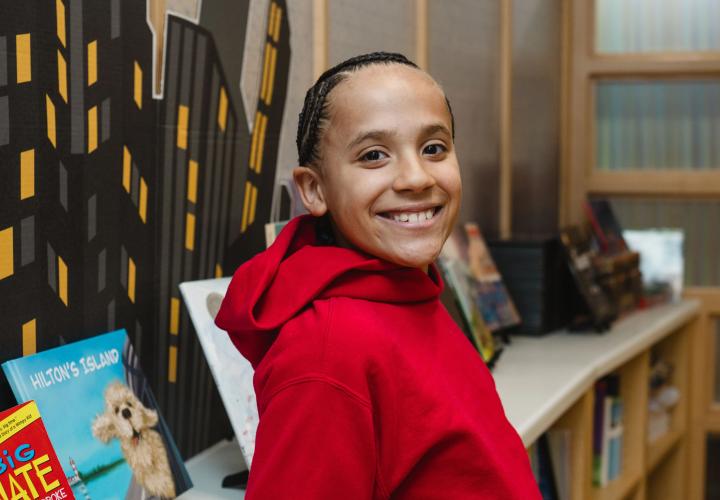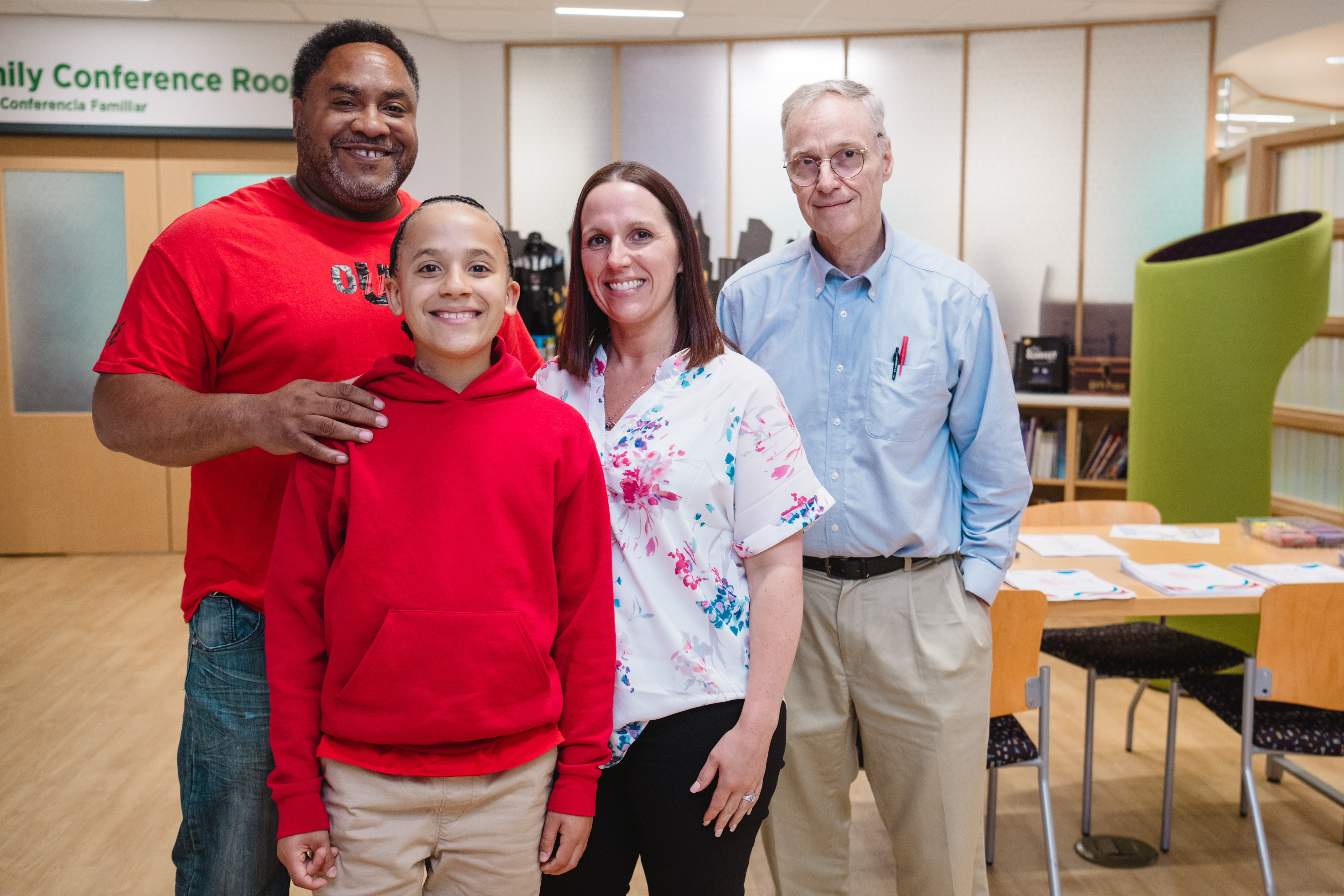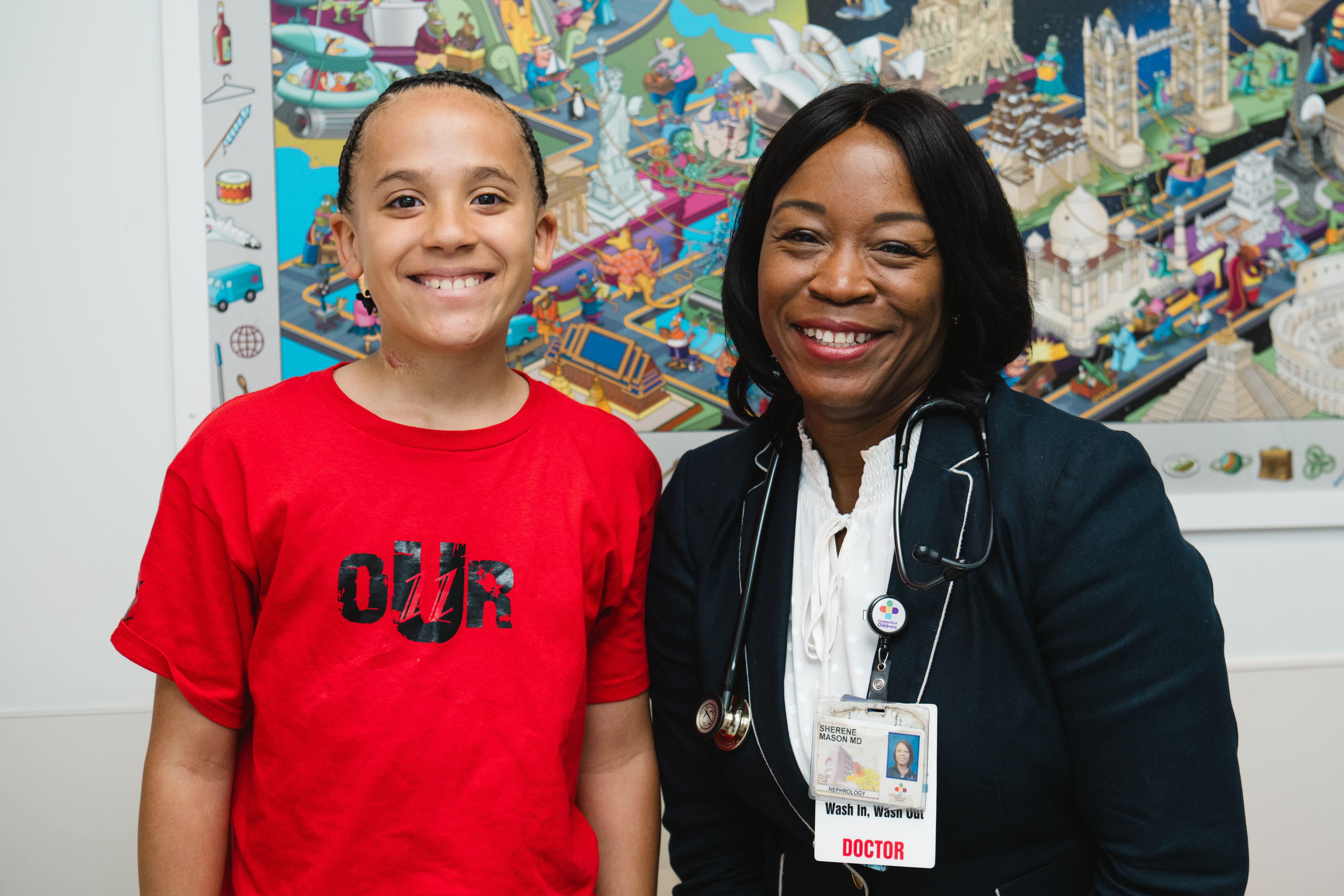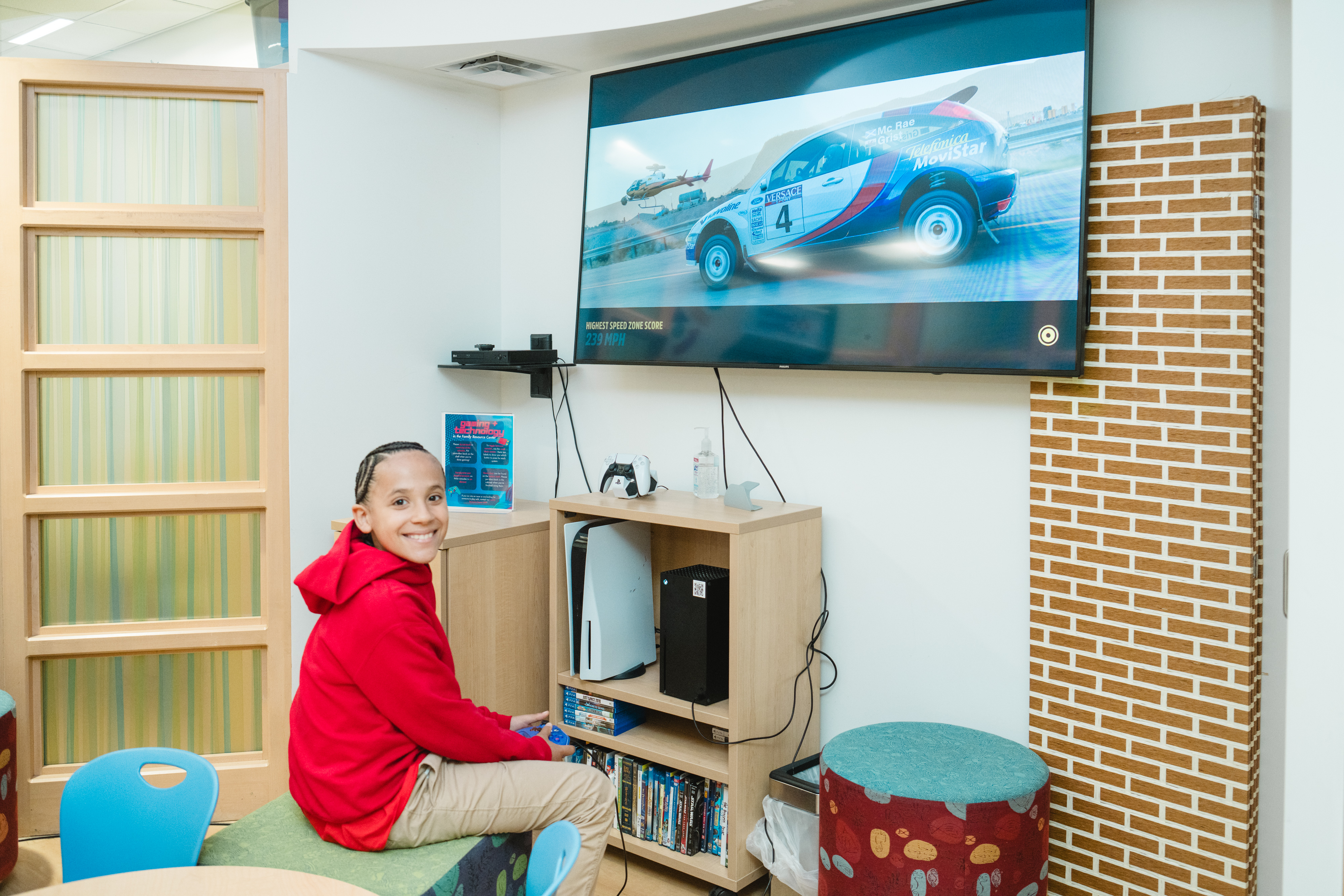"Watch, Dad"
Recovery from a serious illness isn’t just a physical test — it’s a mental one, too. Cash’s comeback took extraordinary determination, both from him and from the people around him.
“I will never forget the warmth Cash’s parents and sister brought to that room every day,” says Marie Nader, MD, another critical care physician on Cash’s team. “They were all so selfless. His sister was a ray of sunshine. I remember thanking them for showing us what family truly means. I’m convinced that Cash's recovery was fueled by their support and love.”
“His family was so committed to his future,” agrees Dr. Wolfgruber. “Their mindset was: Cash is going to work hard and live a beautiful, long life and we’re going to get him there.”
When he was in the hospital, Cash threw himself into rehab, tackling the physical therapy gym before any of his doctors thought would be possible. (Cash’s parents, used to their boy’s athletic excellence, were not surprised.) Once he was home and back in school, he attended every one of his football team’s games, and cheered his teammates on from the bench. Soon, he was strong enough to start training beside them. Within six weeks, he was once again leading the pack in workouts.
At his first follow-up appointment with Connecticut Children’s pulmonology team, his lungs were more than 80% recovered. The team was astonished. And delighted.
“Taking care of Cash definitely left an impact on me,” says Dr. Winters. “Knowing we were able to help get him home with his sister and parents and back to doing the things he loves — that’s what makes this job so special.”
Eight months after his illness, Cash was cleared for full-contact sports. Football season had ended, but he was already thinking ahead.
“Watch, Dad,” Cash said. “Next year, I’m gonna do the best I’ve ever done.”
“Some of the most caring people in the world”
Reliving the past year brings up difficult memories for Cash and his family. But among the traumas are memories of comfort and hope — the nurses who never left Cash’s side, the kindness of cleaning crews and security staff, and the encouragement from other parents facing their own battles.
“Before this, I didn’t even know about Connecticut Children’s,” says Jeff. “You drive by it and you don’t even think. Now, we know how many families are going through these difficult situations — and that some of the most caring people in the world are pulling them through it.”




